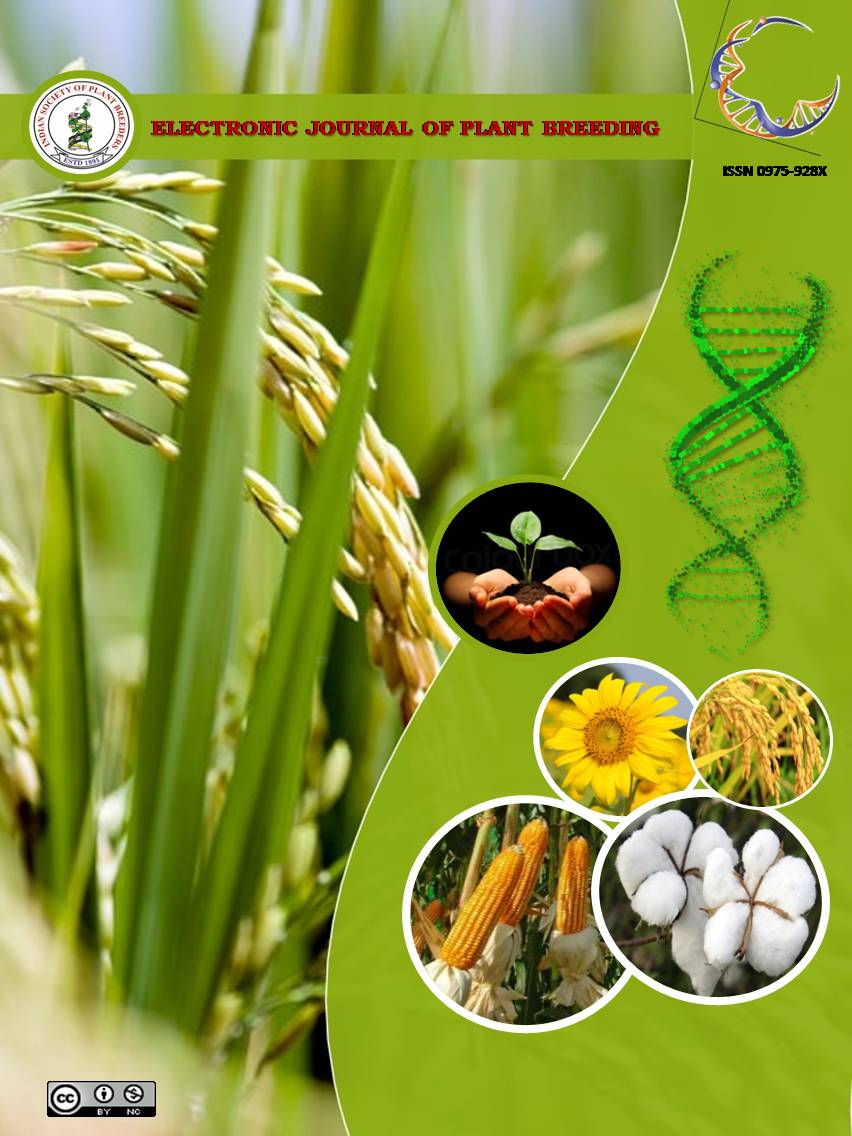National release – A high yielding, short duration, non – lodging and bold seeded prosomillet variety TNPm 230 as ATL1
Abstract
A high yielding and early maturing prosomillet culture TNPm 230 was developed at the Centre of excellence,Athiyandal, Tamil Nadu Agricultural University and released TNPm 230 as ATL1at national level. It is a derivativeof the cross involving TNAU 164 x IPM 19. It yields on average grain yield of 2152 kg/ha and straw yield of 5970kg/haunder rainfed condition. This variety has registered 12 and 15 per cent increased grain yield over the checksTNAU145 and GPUP 21 respectively in All India Coordinated trials. Proposed variety has given Eight and 11 percent increased grain yield over the qualifying varieties TNPm 228 and DHPrMV 2721 respectively. TNPm 230hassemi-compact panicle, bold seeds and exhibited better grain quality than the checks; on par for a response toagronomic practices, susceptible to banded blight in AP only. Therefore, the entry TNPm 230 as ATL1 isrecommended for the national level release except in Andhra Pradesh

